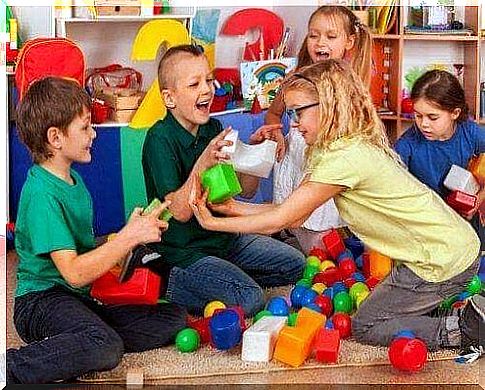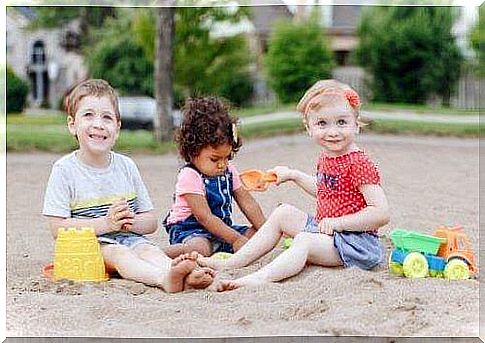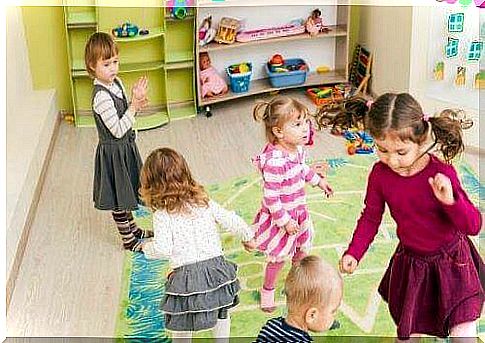Teaching Social Skills: Empathy And Assertiveness

Teaching children social skills contributes to emotional health and good conflict resolution. The basis of these skills is empathy and assertiveness, which are rooted in a deep sense of self-worth.
Most importantly, teachers and parents can help the children acquire and refine these social skills. The first step in learning social skills is for adults to put these skills into practice.
Thus, when implementing the tips suggested in this article, every parent or caregiver should also consider how they interact with those around them.
What is involved in teaching children social skills?
It is clear that children use different ways of interacting with others, whether they are at home or somewhere where groups of children interact.
Take some time each day to think together as a group about ways we choose to interact with each other in society. This makes teaching children social skills a really meaningful endeavor.
1. What are social skills and why do we need them?
A good way to bring this topic to children is to analyze how social skills can improve all of our lives.
Depending on the age of the children, you can perform this step with the help of games. You can also use stories, film, or even reading for elementary school kids.
2. Pick only one skill at a time to work on
It doesn’t help much to introduce a whole range of social skills at once. The ideal approach is to choose one skill to focus on and then focus your activity or lesson plan on that one skill.
For example, give a week to think about “what it means to share and what others share with me.” In this way, the information is absorbed more deeply and each child develops their own personal way of applying this skill.
3. Think carefully about social communication
There are several ways to teach children social skills. The key is that it is the children themselves who have to think about this for themselves. They must be able to express their opinion without judgment.
A good practice is to use a two column table. The column on one side lists each social skill, and in the other column you can list the examples of social activities that the children themselves suggest.

4. Practice What They Learn
You will of course need to adapt the way you convey information so that it is appropriate for each age group. After that, practicing what they’ve learned is the best way to really absorb and strengthen social skills. Role-playing and question-and-answer games are excellent tools for this.
5. Pause and reflect
A break after learning any social skill gives children the opportunity to put what they have learned into action. That way, when you come across situations where a child is actively using a social skill that he or she has been taught, you can think together about how the social skills were applied.
It is a good idea to make children think about their own behavior. They can also explore their thoughts as an individual or together as a group.
In addition, social skills such as the ability to negotiate are complicated, but they have a very positive influence on children’s development, even in the classroom at school.
Learning social skills requires a positive self-image and assertiveness
Another aspect that is used to teach children social skills has to do with their self-image. Every boy and girl should be able to value themselves, love themselves and, moreover, defend their rights and interests.
If there are any doubts about how to teach self-love, we can summarize the best approach as: “Be the best example you can be”. It is also good to consider the following points:
- It is not helpful to compare children.
- Kids need quality time.
- Children need different opportunities to practice their skills.
- Their efforts and strengths must be recognized.
- Their independence should be encouraged.
In short, being assertive and confident has to do with recognizing your own rights and those of others. For very young children, valuing their own rights usually means a sudden loud scream that frightens the perpetrator.

As children learn social skills, you need to keep in mind the importance of a positive self-image and being assertive. Controlling your own emotions requires the ability to be assertive. In addition, self-confidence is also important for conflict resolution, negotiation and persuasion.
In short, teaching children social skills is also a challenge for adults. To start this learning process early and from home is the best gift you can give them.
The fundamental values teach children to be independent and to have a respectful conversation. Moreover, you also need a good cooperation with them to recognize, express and direct their emotions.









